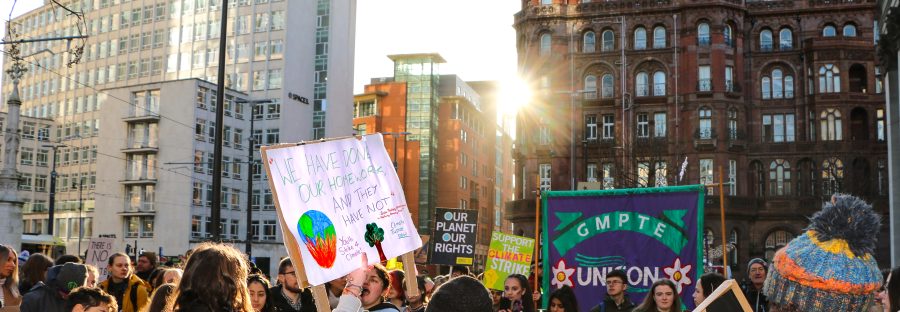School pupils continue to take part in Friday climate protests despite warnings over missing school
- Several hundred climtate protesters gathered together in latest global climate strike
- Strike took placeone day after cross-party leaders debate on climate change
- Young people want to raise more awareness of climate related topics
Several hundred climate protesters gathered St Peter’s Square in Manchester for the latest global climate strike to urge government action.
With a General Election only days away, activists demanded that climate crisis be placed at the top of the political agenda.
Many of the school strikers believe the government is not doing enough to stop climate change and underestimates the issue facing the country and the world as a whole.
“Im attending the strike because I am really passionate about it and nothing hugely has been done at the moment and it needs to be done because it is a proper emergency. We need to kind of take stands”, said one 15-year-old boy.
A schoolgirl said: “There is no focus on climate change and it is such a huge thing and we have Boris Johnson who is kind of like completely ignoring it.”

The strike took place the day after a cross-party leaders debate on climate change was broadcast on Channel 4.
Labour leader Jeremy Corbyn, Liberal Democrat leader Jo Swinson, Scotland’s First Minister and SNP leader Nicola Sturgeon, Plaid Cymru’s leader Adam Price and Green co-leader Sian Berry discussed their party’s plans for climate action. As well as pupils attending the strike, the older generation also supported the Fridays For Future movement, such as Andy Hunter-Rossall, 32, and his wife Catherine, 30.
“The fact that we have five politicians debating climate change on Channel 4 last night, that wouldn’t have happened without this and without extinction rebellion”, said Andy.
When asked what they wanted the government to change, Andy said: “All sorts. Stop digging coal out of the ground, stop subsidising fossil fuels, start subsidising renewable energy, have better housing standards, have more public transport and more trees.”

Peter Clare, 66, mentioned another important factor in the climate crisis: “I think the forgotten part, which is an existential threat, is the loss of biodiversity and ecosystems.
“There is a lot of emphasis on climate change but even if we can mitigate climate change we have still got problems with the loss of biodiversity and habitats because of pollution, changes in land and sea use and direct exploitation of organisms.”
By taking part in these strikes and skip school, young people want to raise more awareness of climate change.
Isobel Deady,16, and two other school girls got even expelled from prom at Albany Academy in Chorley because they attended the protests. But Isobel does not regret it: “It’s good that the words were spread, I don’t regret going to the protests.”

Other pupils are aware that by not going to class, they may face consequences from head teachers many of whom have forabe pupils going on further strikes.
“I still continue going to strikes and no consequences so far,” said one school boy.
More than 120 climate strike protests took place around the UK, as well as over 3,000 worldwide in 150 countries.


